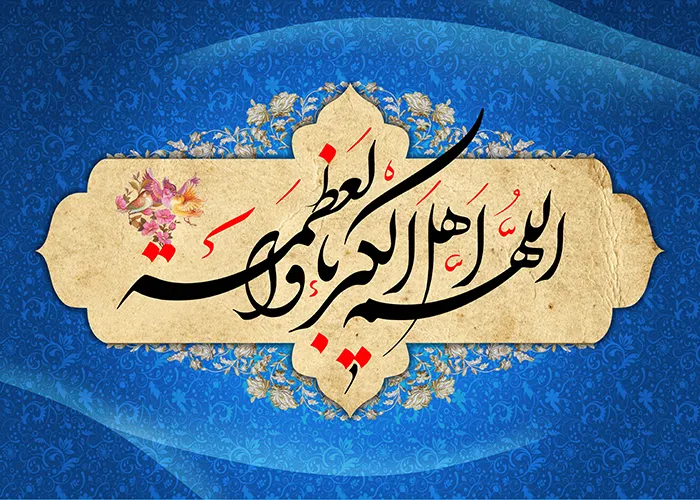Ayah Of The Week – Volume02 Issue13
The Qur’anic Call to End Racism: A Timeless Message for Humanity
Introduction
The Week of Solidarity with the Peoples Struggling Against Racism and Racial Discrimination (21–27 March) serves as a crucial reminder of the need for active efforts to combat racism. Islamic teachings, including the Qur’an and Hadith, have emphasised the necessity of eliminating racial prejudice and discrimination for centuries. This is particularly significant when we consider that Islam introduced this enlightened and humanistic perspective at a time when racial arrogance was at its peak, and awareness of its harmful nature was minimal.
One of the most powerful verses addressing racial equality and human unity is found in Surah Al-Hujurat:
يَا أَيُّهَا النَّاسُ إِنَّا خَلَقْنَاكُمْ مِنْ ذَكَرٍ وَأُنْثَى وَجَعَلْنَاكُمْ شُعُوبًا وَقَبَائِلَ لِتَعَارَفُوا إِنَّ أَكْرَمَكُمْ عِندَ اللَّهِ أَتْقَاكُمْ إِنَّ اللَّهَ عَلِيمٌ خَبِيرٌ (سوره حجرات، آیه ۱۳).
“O mankind! We have created you from a male and a female and made you into nations and tribes so that you may know one another. Verily, the most honourable of you in the sight of Allah is the most righteous of you. Indeed, Allah is All-Knowing, All-Aware.” (Surah Al-Hujurat, 49:13)
The Relevance of This Verse in Today’s Society
This Qur’anic verse carries profound wisdom for modern society. At a time when racial divisions, discrimination, and ethnic prejudices still exist worldwide, embracing the teachings of the Qur’an can help heal societal wounds and promote a more harmonious, just, and inclusive world. The verse teaches that human worth is not determined by race, nationality, or lineage, but by piety and righteousness. Implementing this principle in our daily lives can eradicate discrimination, strengthen brotherhood, and cultivate genuine respect among people.
Below, we explore practical educational messages derived from this verse, tailored for different groups in society.
Educational Messages of the Verse for Youth and Young Adults
- Do Not Judge People Based on Race or Language
The Qur’an reminds us that diversity is meant for understanding and connection, not division: “وَجَعَلْنَاكُمْ شُعُوبًا وَقَبَائِلَ لِتَعَارَفُوا” (We have made you into nations and tribes so that you may know one another). Instead of seeing differences as barriers, young people should see them as opportunities to learn, grow, and build friendships.
Practical Challenge: Make an effort to learn about someone from a different background—whether in school, university, or work—by engaging in a conversation about their culture and experiences. And then, reflect on that new learning.
- True Honour Comes from Good Character, Not Ethnic Identity
The Qur’an states that the most honourable people are those who are righteous:
“إِنَّ أَكْرَمَكُمْ عِندَ اللَّهِ أَتْقَاكُمْ
(The most honourable of you in the sight of Allah is the most righteous of you).
This teaches that moral integrity, righteousness, kindness, and justice are far more valuable than racial or social status.
Practical Challenge: Reflect on your own actions—are you treating others with fairness and respect, regardless of their background? Try to consciously eliminate any bias in your thoughts and interactions.
- Reflect on Differences and Learn from Them
The Qur’an teaches us that diversity exists for a purpose: “لِتَعَارَفُوا” (so that you may know one another). When you see differences in people’s cultures, habits, or ways of thinking, do not rush to reject them or blindly imitate them. Instead, take time to reflect—what can you learn from these differences? How can they help you grow as a person and become more understanding, wise, and compassionate? The real value lies in thinking deeply about what makes each person unique and using that understanding to improve yourself.
Practical Challenge: The next time you notice a cultural or personal difference, ask yourself: What lesson can I take from this? How can this perspective help me become a better person? Try to engage in a meaningful conversation with someone from a different background and ask about their experiences.
Educational Messages of the Verse for Parents
- Be a Living Example of Fairness and Equality
Children learn values from their parents, so demonstrating fairness and respect for all people is crucial. Parents should avoid stereotyping and making negative remarks about different ethnicities or nationalities, as these shape children’s perspectives from a young age.
Practical Challenge: The next time your child asks about someone from a different background, speak positively about their culture and traditions to promote a respectful mindset.
- Teach the Value of Diversity Through Stories and Role Models
Share examples of individuals who were once looked down upon but were great in the sight of Allah. For example, Bilal ibn Rabah (RA), an African companion of the Prophet Muhammad (PBUH), was one of the earliest Muslims and the first Mu’adhin (caller to prayer), proving that true worth is not in lineage but in faith and virtue.
Practical Challenge: Read stories with your children about Muslim heroes from different ethnic backgrounds and discuss how their character was more important than their race.
Educational Messages of the Verse for Religious Leaders (Imams and Scholars)
- Explain the Qur’anic View on Racism in Sermons
Many people still struggle with subtle or unconscious bias. Imams and scholars should actively address racism and discrimination in their khutbahs, using Qur’anic verses like “إِنَّ أَكْرَمَكُمْ عِندَ اللَّهِ أَتْقَاكُمْ” to remind the community that piety—not ethnicity—is the measure of worth.
Practical Challenge: Dedicate at least one Friday sermon each year to discussing Islamic teachings on racial equality and encourage the congregation to engage in anti-racism initiatives.
- Share Real-Life Stories of Righteous People Who Overcame Prejudice
Throughout history, many righteous individuals were initially undervalued due to their race or background but became spiritually great. The Prophet (PBUH) himself removed barriers of racial superiority by choosing Bilal (RA) as his mu’adhin, despite opposition from the Quraysh elite.
Practical Challenge: During your next talk, narrate a story of a great Muslim personality who faced racial prejudice and highlight how their faith and actions earned them honour.
editor's pick
news via inbox
Subscribe to the newsletter.




